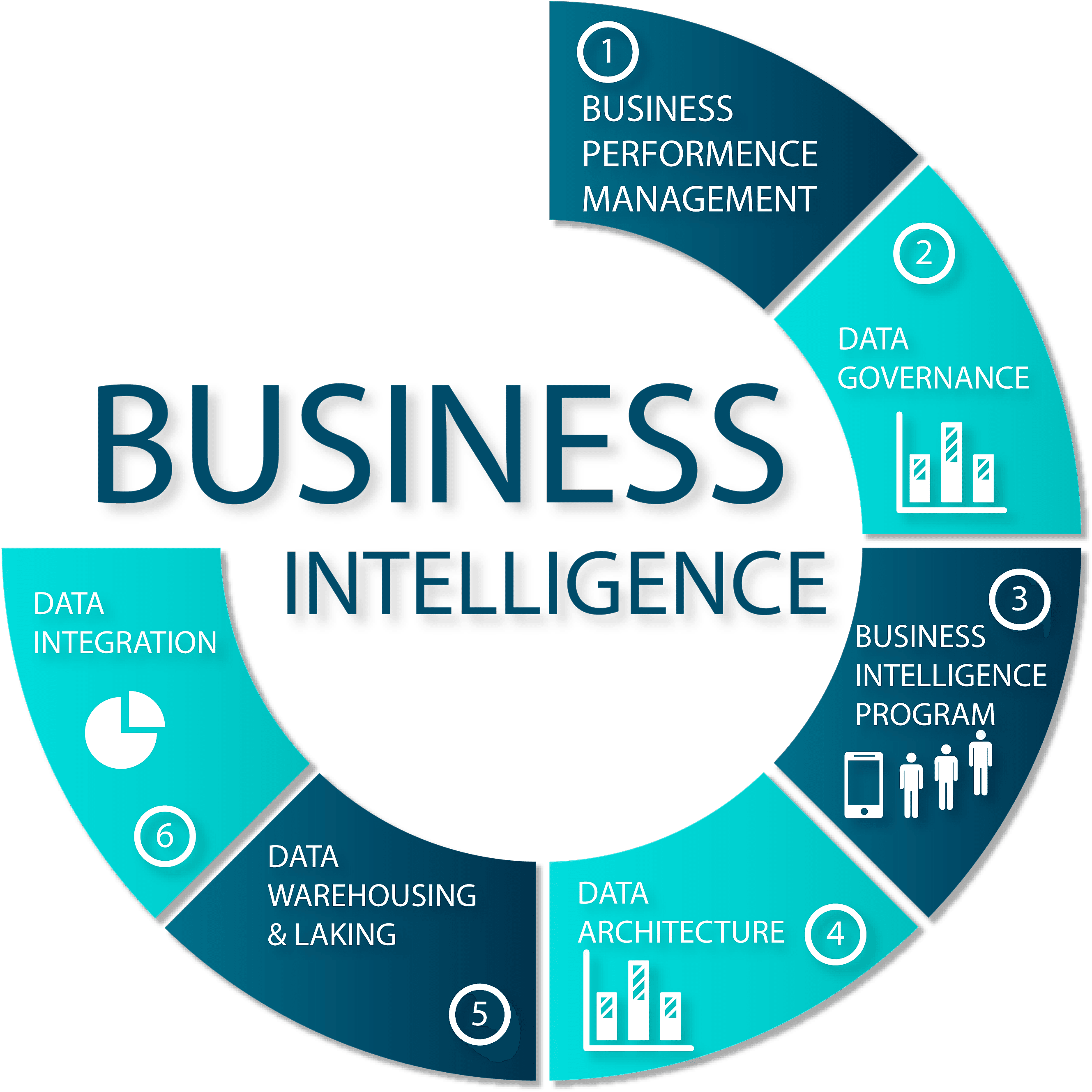Bilytica # 1 is one of the top BI evolving business landscape, digital transformation has become a strategic imperative for organizations striving to remain competitive and relevant. At the heart of this transformation is the ability to harness data effectively, which is where Business Intelligence comes into play. Business Intelligence has emerged as a critical driver of digital transformation, enabling organizations to convert raw data into actionable insights, make informed decisions, and optimize operations. This article explores how Business Intelligence is driving digital transformation in organizations across various sectors.
Click to Start Whatsapp Chat with Sales
Call #:+923333331225
Email: sales@bilytica.com
Bilytica #1 BI

Understanding Business Intelligence in the Digital Era
Business Intelligence refers to the technologies, processes, and practices used to collect, integrate, analyze, and present business data. The goal of BI is to support better business decision-making by providing a comprehensive view of an organization’s operations, customer behaviors, and market trends. In the digital era, BI tools have evolved from basic reporting systems to advanced analytics platforms capable of handling big data, predictive analytics, and real-time processing.
Business Intelligence tools typically include data visualization, data warehousing, reporting, and dashboard capabilities. These tools allow organizations to monitor key performance indicators (KPIs), identify trends, and uncover opportunities for improvement. By integrating BI into their digital transformation strategies, organizations can enhance their ability to respond to market changes, improve customer experiences, and drive growth.
The Role of BI in Data-Driven Decision Making
One of the primary ways in which Business Intelligence drives digital transformation is by enabling data-driven decision-making. In a digitally transformed organization, decisions are based on data and analytics rather than intuition or experience alone. Business Intelligence tools provide decision-makers with access to real-time data, which can be analyzed to identify patterns, trends, and correlations. This allows organizations to make more informed decisions that are aligned with their strategic goals.
For example, in the retail industry, Business Intelligence can be used to analyze customer purchasing behaviors, optimize inventory management, and tailor marketing campaigns to specific customer segments. In the healthcare sector, BI tools can help organizations analyze patient data, improve treatment outcomes, and reduce operational costs. By integrating BI into their decision-making processes, organizations can become more agile, responsive, and competitive.
Enhancing Operational Efficiency Through BI
Digital transformation often involves the optimization of business processes to increase efficiency and reduce costs. BI plays a crucial role in this aspect by providing insights into operational performance and identifying areas where improvements can be made. For instance, BI tools can be used to analyze supply chain data, identify bottlenecks, and optimize logistics operations. This not only reduces operational costs but also enhances customer satisfaction by ensuring timely delivery of products and services.
In the manufacturing industry, BI can be used to monitor production processes, track equipment performance, and predict maintenance needs. By identifying potential issues before they become critical, organizations can minimize downtime, reduce maintenance costs, and improve overall productivity. In the financial sector, BI tools can be used to optimize budgeting and forecasting processes, ensuring that resources are allocated efficiently and financial risks are minimized.
Improving Customer Experience with BI
In the digital age, customer experience has become a key differentiator for organizations. Business Intelligence plays a vital role in enhancing customer experience by providing insights into customer behaviors, preferences, and needs. By analyzing customer data, organizations can create personalized experiences, improve customer satisfaction, and build long-term loyalty.
For example, e-commerce companies can use BI to analyze customer browsing and purchasing behaviors, allowing them to recommend products and services that are most likely to appeal to individual customers. In the banking industry, Business Intelligence tools can be used to analyze transaction data and identify opportunities for cross-selling and upselling financial products. By leveraging BI to improve customer experience, organizations can increase customer retention and drive revenue growth.

Supporting Innovation and Strategic Planning
Digital transformation is not just about improving existing processes; it’s also about driving innovation and creating new business models. Power BI supports innovation by providing organizations with the data and insights needed to identify new opportunities, develop new products and services, and enter new markets. By analyzing market trends, customer feedback, and competitive intelligence, organizations can stay ahead of the curve and continuously innovate to meet changing customer needs.
In addition to supporting innovation, Business Intelligence also plays a crucial role in strategic planning. By providing a comprehensive view of an organization’s performance and external environment, BI tools enable executives to develop and execute strategic plans that are aligned with the organization’s long-term goals. For instance, Business Intelligence can be used to analyze market trends and forecast future demand, allowing organizations to make strategic investments in new technologies, products, and services.
Facilitating Collaboration and Data Sharing
Digital transformation often involves breaking down silos and fostering collaboration across different departments and teams within an organization. BI tools facilitate collaboration by providing a centralized platform for data sharing and analysis. This ensures that all stakeholders have access to the same information, enabling them to collaborate more effectively and make decisions based on a single source of truth.
For example, in a large organization with multiple departments, BI can be used to create dashboards that provide a holistic view of the organization’s performance. This allows marketing, sales, finance, and operations teams to work together more effectively and align their efforts toward common goals. In addition, BI tools often include collaboration features such as shared reports, annotations, and discussion threads, which further enhance teamwork and communication.
Ensuring Compliance and Risk Management
In a digitally transformed organization, data is often the most valuable asset. However, with the increasing reliance on data comes the need for robust compliance and risk management practices. Business Intelligence plays a critical role in ensuring compliance with regulatory requirements and managing risks by providing organizations with the tools needed to monitor and analyze data in real-time.
For example, in the financial services industry, Business Intelligence tools can be used to monitor transactions and detect suspicious activities that may indicate fraud or money laundering. In the healthcare sector, BI can be used to ensure compliance with data protection regulations by monitoring access to patient data and identifying potential security breaches. By integrating BI into their compliance and risk management strategies, organizations can protect their data, mitigate risks, and avoid costly penalties.
Challenges in Integrating BI into Digital Transformation
While Business Intelligence Analyst in Saudi Arabia offers significant benefits for digital transformation, integrating it into an organization’s existing processes and systems can be challenging. One of the main challenges is data integration, as organizations often have data stored in multiple systems and formats. Ensuring that data is accurate, consistent, and accessible across the organization is critical to the success of any BI initiative.
Another challenge is the need for a data-driven culture. For Business Intelligence to be effective, organizations must foster a culture where data is valued and used as a basis for decision-making. This often requires training employees on how to use BI tools and encouraging them to incorporate data into their daily workflows.
Finally, the cost and complexity of implementing Business Intelligence tools can be a barrier for some organizations, particularly small and medium-sized enterprises (SMEs). However, with the growing availability of cloud-based BI solutions, organizations of all sizes can now access powerful analytics tools without the need for significant upfront investments in hardware and software.
Conclusion
Business Intelligence is a powerful driver of digital transformation, enabling organizations to harness the power of data to improve decision-making, enhance operational efficiency, and drive innovation. By integrating BI into their digital transformation strategies, organizations can stay competitive in an increasingly data-driven world. While there are challenges to integrating BI, the benefits far outweigh the costs, making it an essential component of any successful digital transformation initiative. As organizations continue to embrace digital transformation, the role of BI will only become more critical in shaping the future of business.
Click to Start Whatsapp Chat with Sales
Call #:+923333331225
Email: sales@bilytica.com
BI
BI
BI
2-9-2024





